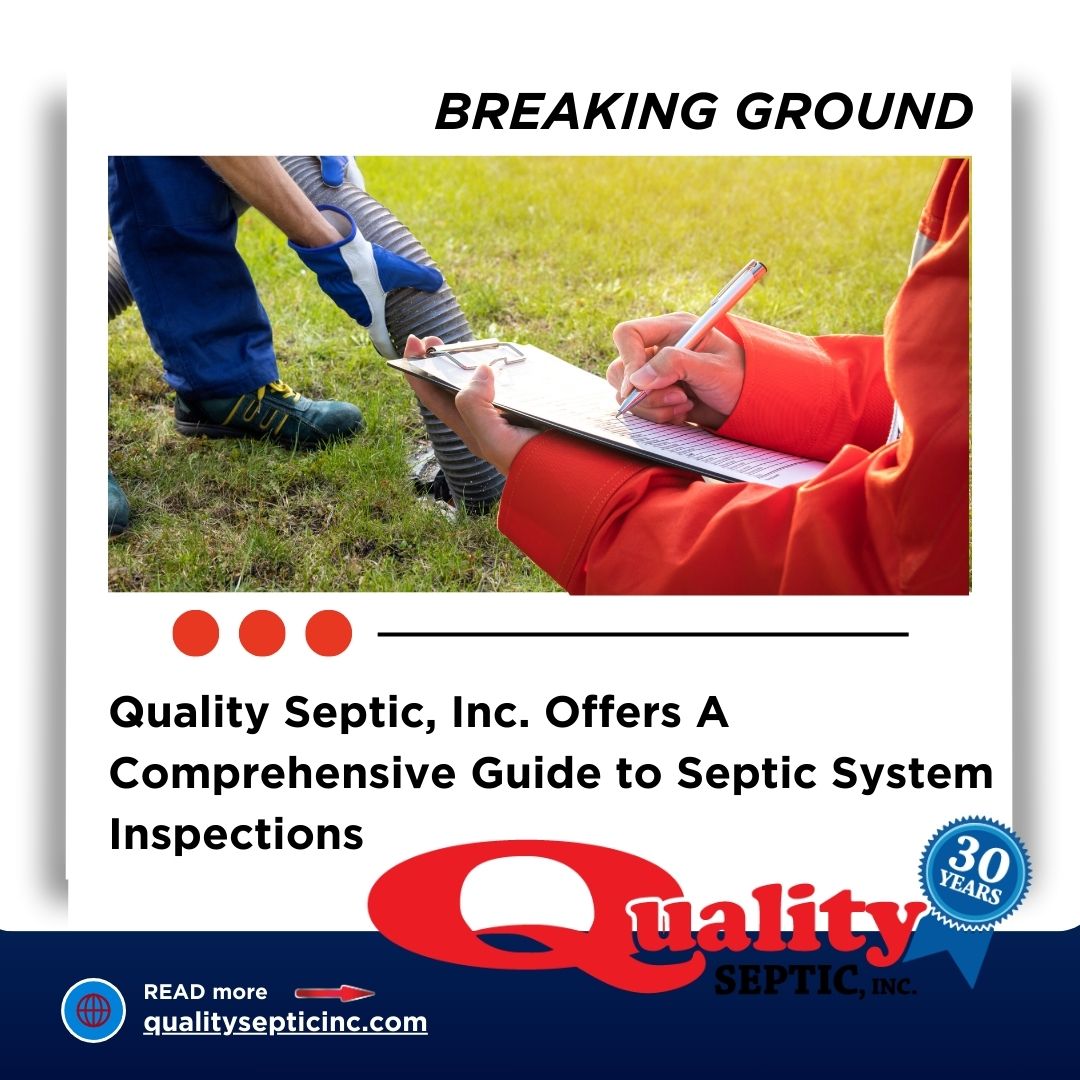Septic system inspections are crucial for maintaining the health and longevity of your wastewater treatment system. At Quality Septic Inc., we understand the importance of regular inspections and are here to guide you through the process. Whether you’re a homeowner or business owner, understanding what to expect during a septic inspection can help you keep your system running smoothly and avoid costly repairs.

Are Septic System Inspections Actually Important?
Yes! Routine septic system inspections are necessary for several reasons:
Early Problem Detection: Catching issues early helps avoid turning minor problems into significant, expensive repairs.
System Longevity: Routine maintenance and inspections can prolong the lifespan of your septic system.
Health and Safety: Well-maintained septic systems prevent groundwater and surface water contamination, safeguarding public health and the environment.
Regulatory Compliance: Regular inspections are often mandated to meet local health and environmental regulations.
When Should You Schedule an Inspection?
Routine Maintenance: It’s recommended to have your septic system inspected at least once every three years by a professional.
Property Transactions: Inspections are often necessary when buying or selling a property with a septic system.
System Performance Issues: Schedule an immediate inspection if you notice issues like slow drains, foul odors, or sewage backups.
What to Expect During a Septic System Inspection
A thorough septic system inspection involves several key steps:
1. Initial Assessment
– A professional septic system inspector will gather information about your system, including its age, design, and maintenance history.
2. Visual Inspection
– The septic inspector will visually examine the area around your septic system for signs of leaks or other issues.
3. Tank Inspection
– The septic inspector will open the septic tank and check the sludge and scum levels to determine if pumping is needed. At this time, the tank will also be inspected for cracks, leaks, and the condition of the inlet and outlet baffles.
4. Distribution Box Inspection
– The distribution box is checked to ensure it is distributing waste evenly to the drain field.
5. Drain Field Inspection
– The septic inspector will examine the drain field for signs of failure, such as standing water or lush vegetation over the field, indicating potential leaks or clogs.
6. System Testing
– The septic inspector may perform dye tests or hydraulic load tests to check for proper system function and diagnose any issues.
7. Reporting and Recommendations
– After the inspection, you’ll receive a detailed report from the septic inspector outlining the condition of your system, any issues found, and recommended actions.
Common Issues Your Septic Inspector May Find During an Inspection
Clogged Pipes: Accumulation of solid waste, which can clog pipes, causing backups.
Tank Damage: Cracks or leaks in the septic tank, which can lead to contamination and system failure.
Drain Field Problems: Saturated or failing drain fields that can’t properly filter waste, which can lead to surface contamination.
Baffle Issues:Damaged or missing baffles, which can cause solids to enter the drain field and clog it.
Tips for Maintaining a Healthy Septic System
Regular Pumping: Have your septic tank pumped every 3-5 years, or as recommended based on inspections.
Mind What You Flush: Avoid flushing non-biodegradable items, grease, or chemicals that can harm the septic system.
Conserve Water: Excessive water use can overload the system, leading to premature failure.
Proper Landscaping: Keep trees and shrubs away from the drain field to prevent root intrusion.
Use Septic-Safe Products: Choose household products that are safe for septic systems to avoid disrupting the microbial balance in the tank.
Regular septic system inspections are a key component of maintaining a healthy, functioning wastewater treatment system. At Quality Septic Inc., we provide comprehensive inspection services to help you identify issues early and keep your system in top condition. Contact us today to schedule your inspection and ensure the longevity and safety of your septic system.
